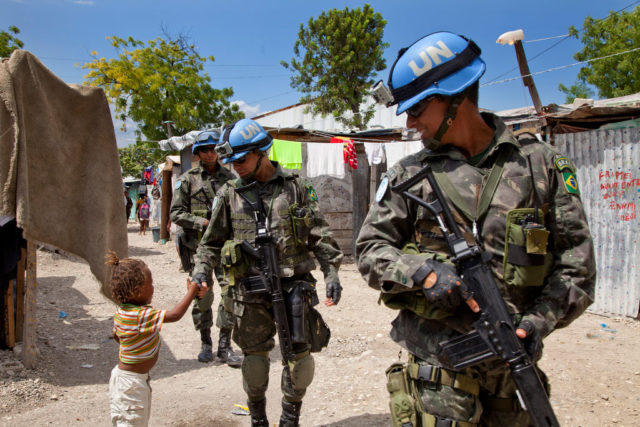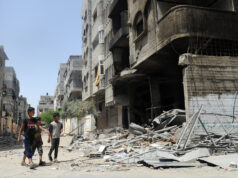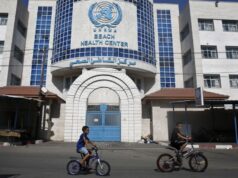There was hard news in The Washington Post’s Dec. 13, 2016 editorial headlined “The U.N. comes clean(ish); The secretary general finally takes some responsibility for the cholera outbreak in Haiti” (print edition). But not enough, and even less big-picture context.
More than six years after a brigade of U.N. peacekeepers from Nepal introduced cholera in Haiti, triggering an epidemic that has killed at least 10,000 and sickened many more, U.N. Secretary General Ban Ki-moon has finally uttered the word ‘sorry.” Only when it became clear that its credibility was in tatters, and its authority to insist that member states adhere to international norms was in jeopardy, did the United National finally come to terms publicly with its culpability in the cholera outbreak.
Readers who have other things to do than regularly scrutinize the United Nations needed more background. Without it they likely would not understand how the world body’s Haitian failure epitomized its inability to perform its primary functions. These are, ostensibly, peace making and peacekeeping. JPC’s inFOCUS Quarterly noted the Haitian example in “Ban Ki-moon’s UN: Does It Matter?” Summer 2016.
But, the newspaper added, under Ban’s successor, former Portuguese prime minister Antonio Guterres, who takes office next month, the United Nations “has every incentive … to heal Haiti to the extent possible and restore its own moral standing.”
The editorial does not mention U.N. failures in Rwanda, Srebrenica and Darfur in recent decades. By its actions and inaction in these and other crises the world body contributed—indirectly when not directly—to mass murder on genocidal scale.
As Ban offered a minimalist apology for U.N. responsibility in Haiti, the forces of Syrian dictator Bashar al-Asad and his Russian and Iranian allies were completing the reduction of formerly rebel-held eastern Aleppo. Earlier U.N. efforts at peace-making in Syria’s devastating civil wars having failed, the world body has proved largely ineffectual in easing the resultant massive humanitarian crisis.
Before Rwanda, Srebrenica and Darfur there was East Timor, the Congo and Biafra. U.N. irrelevance, if not failed involvement, has been since the 1960s a constant in international events that resulted in the deaths of hundreds of thousands if not millions of people. Today, Iran continues to call and prepare for the destruction of Israel, violating the Convention Against Genocide the United Nations adopted in 1948. The organization stays mute on Tehran’s genocidal threats but its various agencies continue to issue one unfounded anti-Israel resolution after another, including the Security Council’s Orwellian condemnation on December 23 of Israeli settlements.
Those who insist on looking to the United Nations for effective leadership, material or moral, will continue to waste their time. As Alan Dershowitz, Harvard University Law professor emeritus said in Israel recently, the organization’s been “an absolute disaster.” At times preventing rather than promoting peace, “it’s done more harm than good.”
It may well be that the United Nations was designed to be ineffective absent consensus among the five permanent Security Council members—the United States, United Kingdom, France, Russia and China. Regardless, outgoing Secretary General Ban’s too-little, too-late Haitian apology provides a useful reminder.






